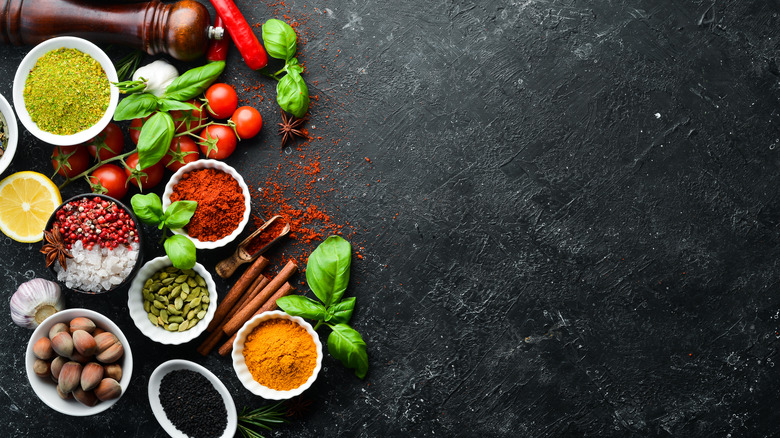When You Should Be Seasoning Vegetables
You probably already know the importance of seasoning your food. Seasoning adds complex new flavors to your dishes and can help bring out the flavors that are already there. But did you know that when you add seasoning to your food can make a big difference?
The Kitchn writes that you should add various herbs and spices at different points throughout the cooking process. When you choose to add spices to a dish can even affect its nutritional value. Mindbodygreen explains that some spices, like turmeric, have anti-oxidant properties that are activated by heat. Others, like cinnamon and clove, can lose their nutritional value when heated over 350 degrees Fahrenheit.
Some seasonings, like salt, should be gradually added at each step of the recipe. Others should be added towards the end since heat can make them lose their flavor. According to Stonesoup, you should keep tasting the food throughout the cooking process, but be careful to avoid taste saturation. When you've been sampling something for a while, your taste buds get used to the flavor, which can make you overseason. Instead, take a break and drink a glass of water or have someone else taste the dish for you.
What seasonings should you add and when?
Just like when cooking pasta, you should add salt to the water first before boiling or steaming vegetables. This way, the salt will penetrate the vegetables and flavor them more evenly. Be generous — Bon Appétit recommends dissolving an entire cup of salt into water before boiling potatoes, for instance. That's a lot of salt, but potatoes are large and dense, so they won't absorb as much as other vegetables. Some might need less, so experiment to find the proper ratio; you may not even have to salt the vegetables again after they're cooked.
Spice It Upp states that you should add whole spices or raw ground spices early on and include some sort of fat or oil to help release the flavor. Giving them time to cook will make for a richer flavor and help the seasoning permeate through the dish.
What about fresh spices, though? Cook's Illustrated explains that you should add heartier herbs like rosemary, sage, and marjoram early on. This helps them release their flavor — and ensures that their tougher texture won't stick out. Delicate herbs, like parsley, basil, and cilantro, should be added last or used as a garnish. Adding them too early will make them wilt and lose their flavor.

